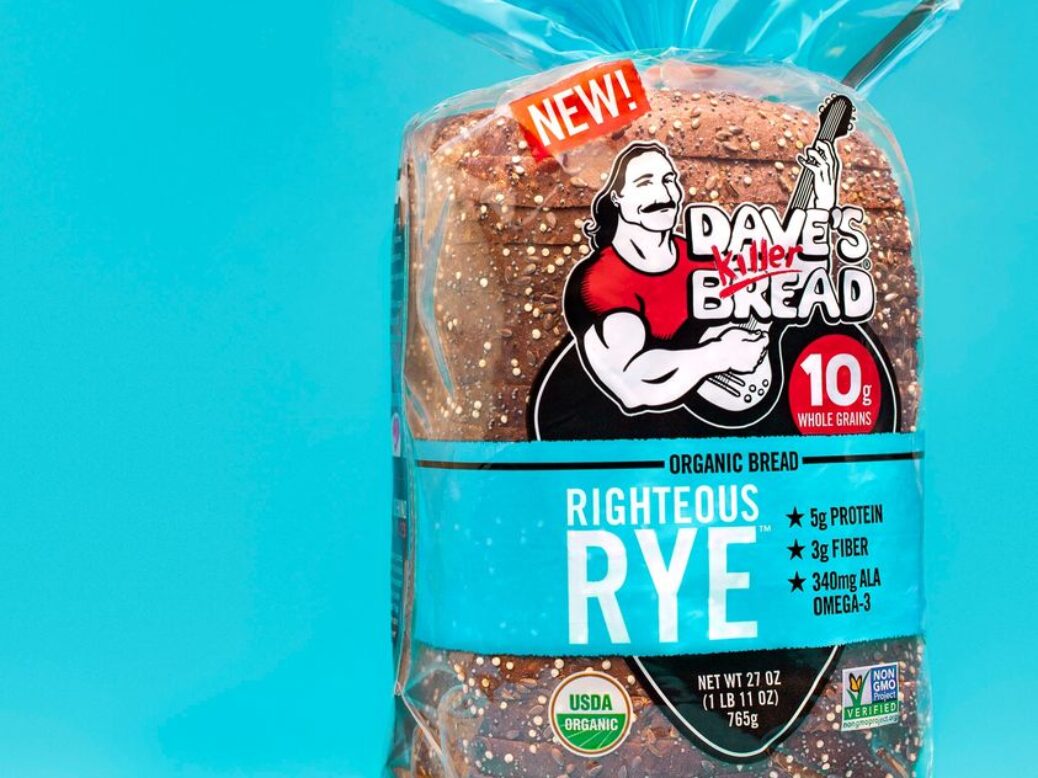
US bakery group Flowers Foods anticipates inflationary pressures will build in the current quarter just as the longer-term trend in private-label demise seems to be abating.
“One area of note this quarter is a pause in the longstanding decline in private-label market share,” president and CEO Ryals McMullian said in his prepared remarks to accompany the Dave’s Killer Bread brand owner’s second-quarter results to 16 July. Last November, McMullian noted the sector had been in decline for more than five years.
His latest observation surfaces with Flowers Foods in the midst of a strategy shift into branded over own-label. McMullian had indicated in February, when he revealed the plan, that branded accounted for around 66% of the businesses’ sales last year, bearing in mind pandemic-related factors.
While McMullian and his finance counterpart Steve Kinsey painted a mixed picture of the reasons for the uptick in private label, with patterns differing between low- and high-income households and retailer designations, his depiction of inflation might not help. Allied with the fact Flowers Foods raised prices again in June, on top of increases in January and July of last year.
“In Q3, we’ll see our highest overall cost from an inflationary standpoint,” Kinsey explained to analysts on a follow-up call. “It will moderate somewhat in Q4, but again, it still will be elevated in Q4 but the peak of that happens in Q3 and then it starts to pull back slightly.”
McMullian went to some length to explain his “pause” take on the private-label dynamics in his prepared remarks.
“On the surface, this change seems to indicate that inflationary pressures are encouraging consumers to trade down. However, those aggregate results have been driven by concentrated activity in the mass merchandise channel where private-label retail prices have not adjusted to reflect recent inflationary pressures. The resulting wide price gaps to branded products seem to be driving much of the stabilisation in private-label share.
“Areas of retail that reflect price gaps more in line with historical levels, such as in the grocery channel, show continued private-label share losses.”
He continued on the theme, addressing the recent price increases, the possibility of more to come and the parameters around retailer acceptance.
“Considering the margin pressure retailers are facing in some categories outside of food, investors have speculated that future food price increases will be harder to come by. It’s important to note that all three of our recent price increases were the direct result of significant, measurable inflationary pressures that impacted virtually all companies in the food industry and beyond.
“Although retailers are always reluctant to accept price increases, there was a general acceptance that such increases were necessary given the environment. So should we encounter further inflationary pressures, we believe we will have similar success in implementing additional price increases to mitigate those pressures. So far, the impact of our price increases on demand has been in line with our expectations, with elasticities remaining below historical levels. “
Flowers Foods’ 11% increase in second-quarter sales to US$1.1bn – with branded retail up 9.1% at $735.9m – was aided by the June price increase, which helped to offset inflationary pressure, McMullian said. However, volume was down 3.4%.
Elsewhere, adjusted EBITDA fell 1.8% to $120m, while net income was down 4.8% at $53.7m.
McMullian said the business lost market share to the tune of ten basis points in the quarter related to packaging shortages for Dave’s Killer Bread, SKU rationalisation as part of the branded switch and the price shift.
“Our price increases, which we took a bit earlier than usual in June to mitigate inflation, led to a temporarily less‐favourable competitive position, which also hampered revenues,” he explained.
He added: “Our product mix regressed slightly as the long‐term trend of share losses in the private-label category paused, and the price increases in that business exceeded other categories, as we work to improve its profitability. Those efforts are paying off and, as a result, we expect such share shifts, should they continue, to be less dilutive to margins than in the past.”
Sales for the first half amounted to $2.6bn, up 10.3%, with the branded portion rising 10.1% to $1.7bn. Store branded retail sales climbed 20% for the second quarter to $157.2m and were up 12.7% over the six months at $330.8m.
Total group first-half volume was down 3.3%. Adjusted EBITDA climbed 0.6% to $285.4m and net income increased 8.8% to $139.3m.
McMullian noted retailers have acknowledged consumers are cutting spending in discretionary areas and “making more of their food purchases at value‐oriented merchants such as mass, dollar and club stores”.
He added: “Lower-income consumers have tended to trade down to less expensive products more than those with higher income. This behaviour has been particularly stark in the premium category, where higher-income consumers have actually increased purchases of some products, including Dave’s Killer Bread. On the other hand, we have seen lower-income households reduce their number of purchases.”
Just Food opinion pages: Why the US fresh bread market is not as stale as some may think



